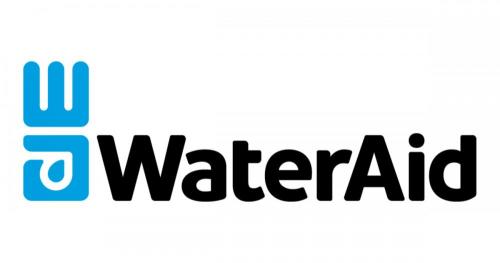
The COVID-19 pandemic has shown how poor sanitation conditions in one part of the world can have rapid and long-lasting impacts in another. Here, WaterAid makes the economic case for water, sanitation and hygiene and shows how such investments can have long-lasting economic, environmental and health benefits, enabling communities to respond, recover and adapt to new threats.
COVID-19’s tragic global impact on health and wellbeing leaves a legacy that will shape the current decade. As global leaders in government, business and civil society focus on the urgent task of making vaccines available worldwide, they must ensure that the economic recovery from the pandemic is healthy, inclusive and sustainable. Investing in water, sanitation and hygiene (WASH), and achieving universal access as set out in Sustainable Development Goal (SDG) 6, should be central to this endeavour.
A new report from WaterAid and Vivid Economics, Mission-critical: investing in water, sanitation and hygiene for a healthy and green economic recovery, updates previous research and analysis of the costs and benefits of investing in WASH in developing countries. It shows how sustainable WASH services are fundamental to improving environmental, economic and health outcomes for individuals and communities, thus enabling economies to respond, recover and adapt to new threats.
The report confirms the multiple benefits of achieving universal access to safe WASH services, such as unlocking trillions of dollars of value over the next two decades. For example, achieving universal access to safely managed sanitation is estimated to yield net benefits of $86 billion per year between 2021 and 2040, while universal access to safely managed water supplies could yield net benefits of $37 billion per year.
Health outcomes would also be improved through reducing cases of diarrhoeal diseases, worm-like parasites, dehydration, antimicrobial resistance and mental anxiety. Environmental outcomes would be improved by reducing the pollution and contamination of land and water resources. Social and economic outcomes would be improved, too, by reducing the time it takes to collect water, thus improving productivity and opportunities for the circular economy. In fact, basic, safely managed and climate-resilient access to WASH services are all shown to deliver significant net benefits, in line with the diagram below.
Protecting water and sanitation infrastructure from flooding is also shown to be highly effective: every dollar spent on ensuring WASH infrastructure is resilient to flooding could avoid at least $62 in restoration costs, and prevent the life-threatening contamination of drinking water sources. This demonstrates how crucial WASH investments are for building climate resilience.
The report also places WASH investments in the context of the economic recessions faced by most developing countries as a result of the COVID-19 pandemic, showing that financing water and sanitation infrastructure can be timely, temporary, targeted and transformational – meeting the four established criteria for investments to be effective and environmentally sound stimulus measures.
Case studies from Burie in Ethiopia and Shyamnagar in Bangladesh analyse recent programme interventions at a local level. They show how WASH programmes save people's time, improve their health and have several other economic and environmental benefits. The case studies also show how WASH programmes and their outcomes can strengthen the resilience of marginalised communities in the face of climate change, with particular benefits for women and girls. Together, the global analysis and case studies show how safe and climate-resilient WASH is fundamental to Agenda 2030. Put simply, unless SDG 6 is achieved, global goals 1 (poverty), 3 (health), 4 (education), 5 (gender), 8 (decent work), 10 (reduced inequality), 11 (cities), 12 (responsible consumption), and 14 (seas and oceans) will fail.
COVID-19 has shown how poor sanitation conditions in one part of the world can have rapid and long-lasting global impacts. Yet, according to the latest figures from the WHO/UNICEF Joint Monitoring Programme, 3.6 billion people worldwide live without access to safely managed sanitation and 2.3 billion live without basic hygiene – both vital measures for preventing the spread of infection.
There can be no going back to the pre-pandemic business-as-usual. Mission-critical is a call to action for world leaders – in government, business, international organisations, civil society – to put an end to the skewed priorities that find endless finance for excessive military spending, space missions to Mars, or the exploitation of fossil fuels. It is a call to action for world leaders, north and south, to invest in what really matters: the human rights of billions of people worldwide who are currently denied access to safe water, sanitation and hygiene. It is time to place common interest before self-interest.
John Garrett is WaterAid’s Senior Policy Analyst – Development Finance.
Hossain Ishrath Adib is Director of Programmes at WaterAid Bangladesh.
Tseguereda Abraham is Head of Advocacy and Sector Strengthening at WaterAid Ethiopia.











Add new comment